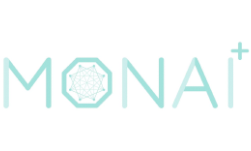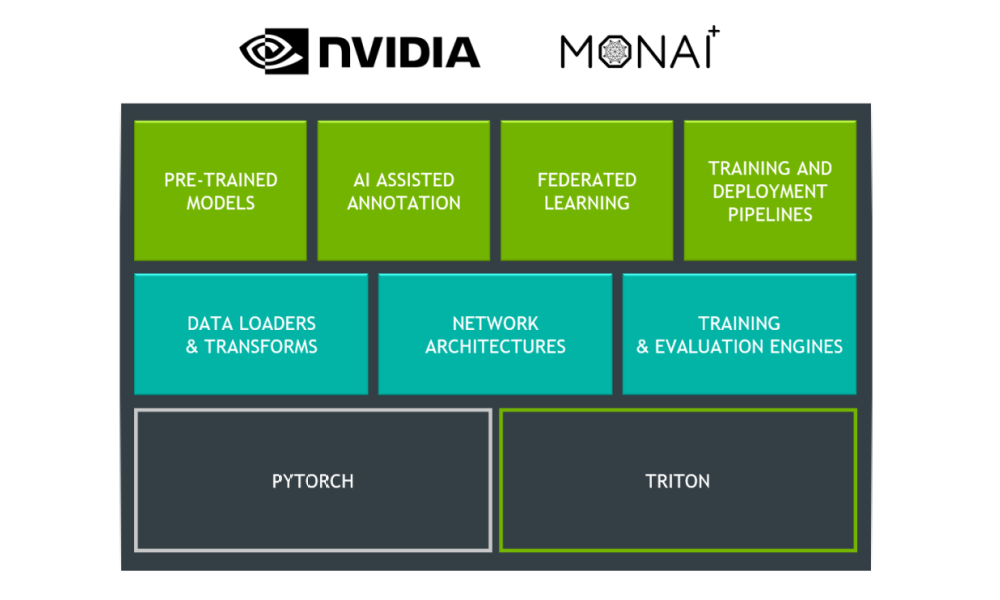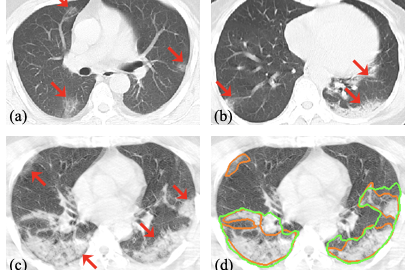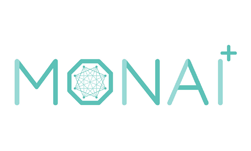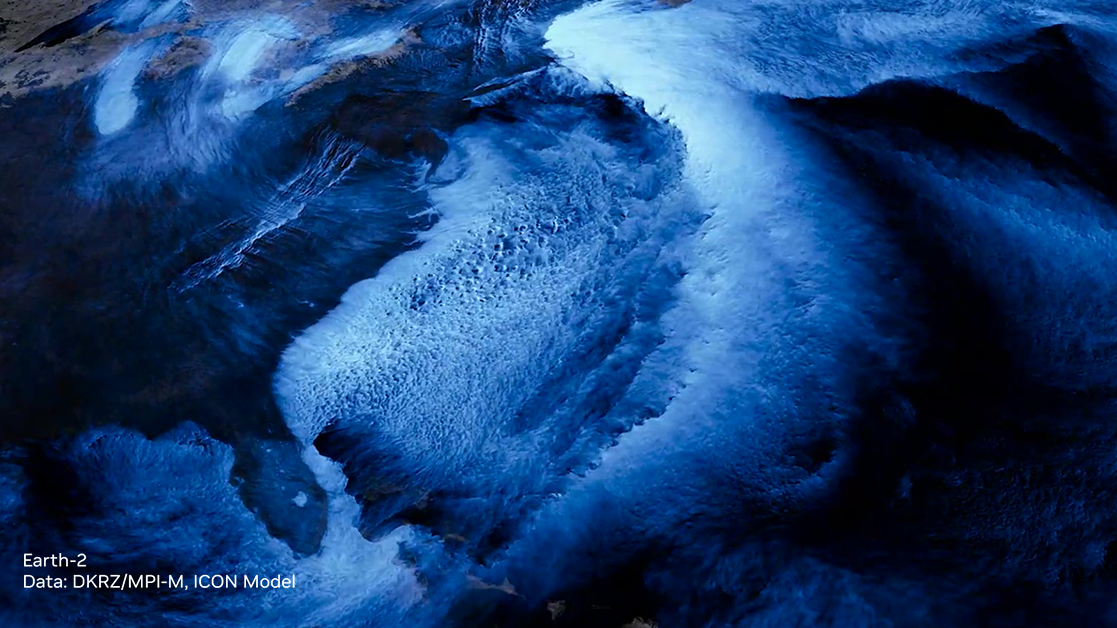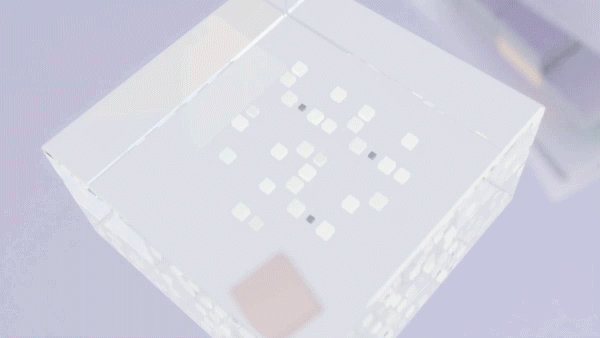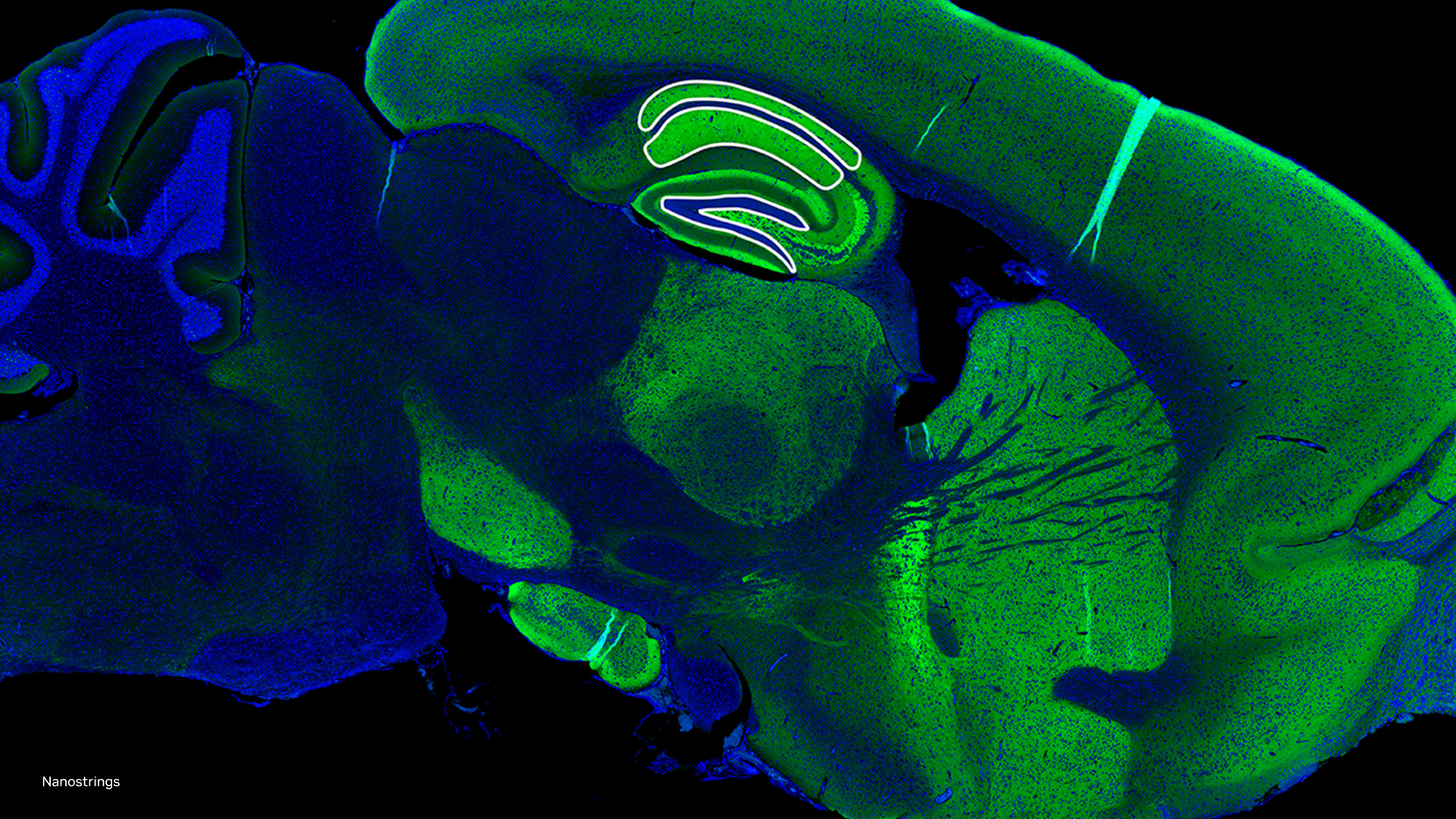Building on the public alpha release announced at GTC 2020 in April, MONAI (Medical Open Network for AI) is an open source and community-supported PyTorch-based framework for healthcare imaging — providing domain-optimized foundational capabilities for developing deep learning training workflows.
MONAI v0.2 brings new capabilities, examples, and research implementations for medical imaging researchers to accelerate the pace of innovation for AI development and was recently covered by Computer Vision News 2020.

MONAI v0.2 Highlights
- Medical Imaging Transformations and Augmentations
- To converge the community for best practices for imaging-specific transformations and augmentations, MONAI includes Adapter Tools for third-party toolkit interoperability with BatchGenerator, Torch I/O, Rising and ITK
- Researchers can now compose multiple transforms chain using implementations from one these toolkits along with native MONAI implementations that include imaging-specific dictionary, array and spatial transformations with GPU optimizations
- Data Caching and I/O modules for domain-specific needs
- Researchers often need to train models with many epochs to achieve desired quality. Native PyTorch implementation would repeatedly load the data and run same preprocessing which is time consuming — MONAI combines multi-threading with smart caching techniques to provide up to 10X performance gains
- To lower the barrier to getting started for a researcher’s first training experiment, MONAI v0.2 includes standardized interfaces for data loading of public datasets like Medical Decathlon, and also addresses the creation of new datasets using MONAI APIs. Explore the public datasets tutorial.
- MONAI v0.2 includes IEEE and MICCAI-based research publications
- MONAI delivers on its core promise of including research baseline implementations for advanced research publications to enable comparisons with state-of-the-art implementations for further collaborations
- MONAI v0.2 includes an implementation of “COPLE-Net for COVID-19 Pneumonia Lesion Segmentation”, an IEEE publication
- MONAI v0.2 also includes an implementation of an early MICCA-2020 accepted paper “LAMP: Large Deep Nets with Automated Model Parallelism for Image Segmentation”
- Read the technical developer blog to learn more
- New Tutorials and Examples
- For migrating existing PyTorch code to MONAI includes a Colab tutorial
- Integrate third-party transforms into MONAI transform chain
- Medical image generation with GANs
- CacheDataset and PersistentDataset tutorial
- How to easily use and create datasets for public data
- Workflows example with engine and event-handlers
We welcome contributions to MONAI and are committed to building a domain-specialized common software foundation by joining forces with existing open source initiatives and working closely with our advisory board and working groups leads.
Learn more from the recorded webinar “Domain Specific Best Practices for AI Development with MONAI, an Open Source AI Framework“
